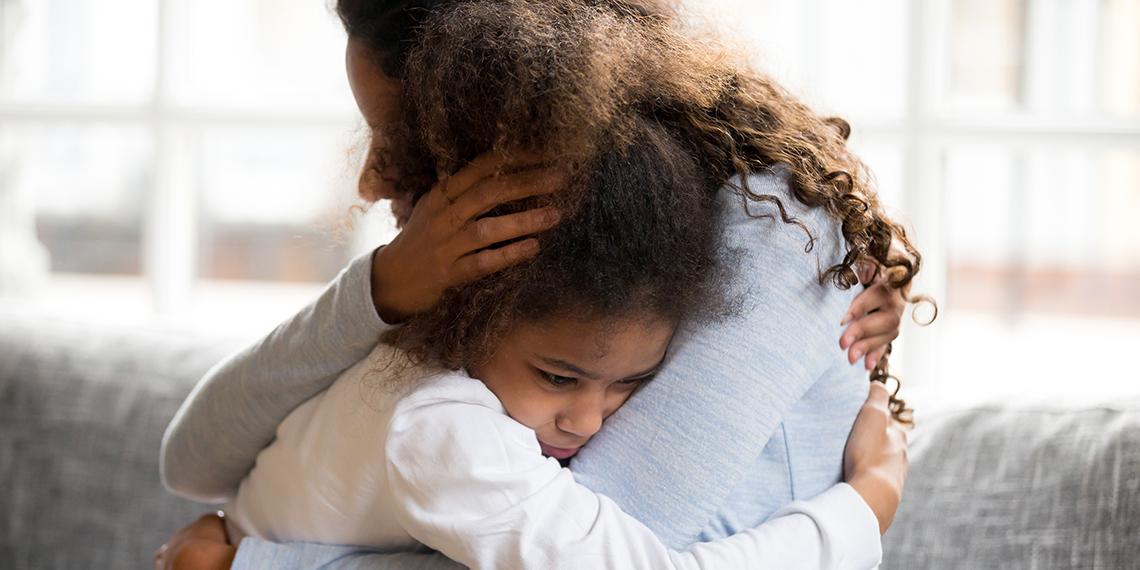Apologising to your kids

Why it’s as important for kids to hear an apology, as it is for adults.
‘I remember a time when I was fighting with my husband and our little girl piped up and said, “Say sorry to each other, now!” I realised she was repeating what I said to her and her siblings when they fought,’ says mum of two Anathea. ‘But now that it was my turn, I found it incredibly hard to stop in my tracks, swallow my pride and say sorry.’
When we mess up as parents, apologising to our children is incredibly powerful. But, we often find it difficult—perhaps we fear losing our position of authority. Parenting blogger Sharon Van Epps says that apologising doesn’t mean surrendering your authority. Instead, it promotes mutual respect:
‘We all want our children to be polite and respectful, but demanding respect without extending it in return teaches the wrong lesson. Offering your child an apology, when appropriate, extends respect that will eventually boomerang back to you. Children are incredibly forgiving, especially if we meet them halfway by acknowledging our mistakes. With a foundation
of mutual love and respect in place, kids will be more likely to say sorry to mum and dad when they screw up—just like us,’ she says.
Van Epps is the adoptive mother to three foster children, and says her mantra for promoting attachment has been ‘nurture more; control less’.
Saying sorry when we’ve messed up as parents is an act of nurture—it makes our kids feel cared for and listened to. It protects the intimate bond between parent and child.
Finally, saying sorry just feels better. ‘Apologising forces me to focus on my kids instead of myself, and in the end, we all feel better,’ says Van Epps.
Of course, it’s best if we don’t lose our temper, or fight in front of the kids, or any other number of things we never intend to do. But if we’re quick to apologise to our children, it not only models good behaviour, it reminds our kids that they are far more important than our pride.
The Five Languages of an Apology
Gary Chapman, author of The Five Love Languages, says there are also five ways to say sorry. To make an apology effective, we must tune in to how the person will receive it.
1 Expressing regret—‘I am sorry’: You need to hear the words ‘I am sorry’, along with the sincerity that goes along with it.
2 Accepting responsibility—‘I was wrong’: It will be especially meaningful to you to have the other person fully admit their mistake, without self-justification or excuses.
3 Genuine repentance—‘I want to change’: It will be especially meaningful for you to have the other person take responsibility for what they have done, along with a plan and tangible steps for action so that it will not happen again.
4 Making restitution—‘What can I do to make this right?’: It will be especially meaningful to have the other person take practical action, even financial action, to put things right and basically equalise things between you.
5 Requesting forgiveness—‘Please forgive me’: This type of apology is especially meaningful, as it means reaching out for a relationship to be fully restored. If you prefer this kind of apology, it will be especially meaningful to have the other person take the risk of asking for forgiveness.
Source: The Five Languages of An Apology by Gary Chapman and Jennifer Thomas
(c) 'War Cry' magazine, 23 February 2019 p10. You can read 'War Cry' at your nearest Salvation Army church or centre, or subscribe through Salvationist Resources.
